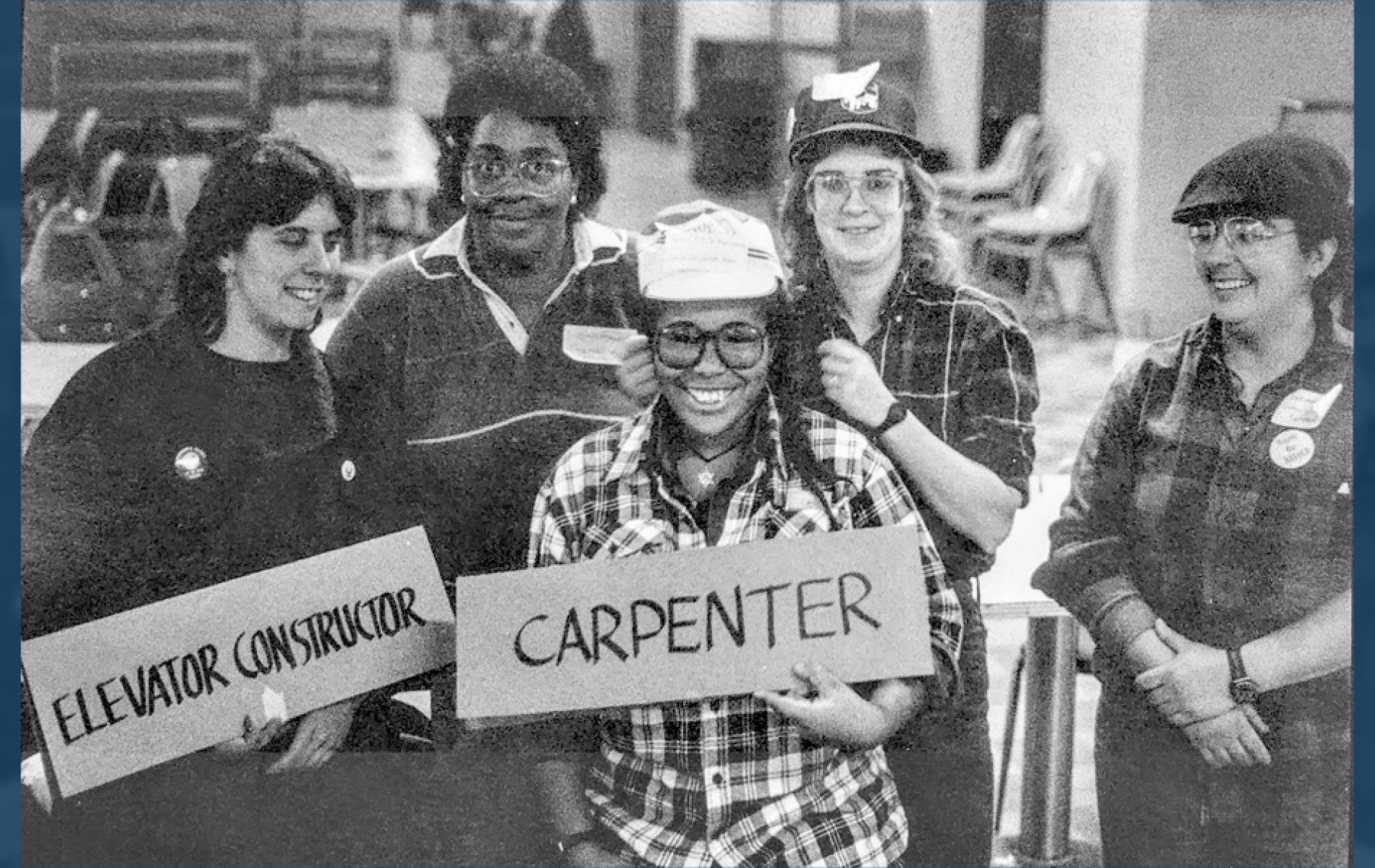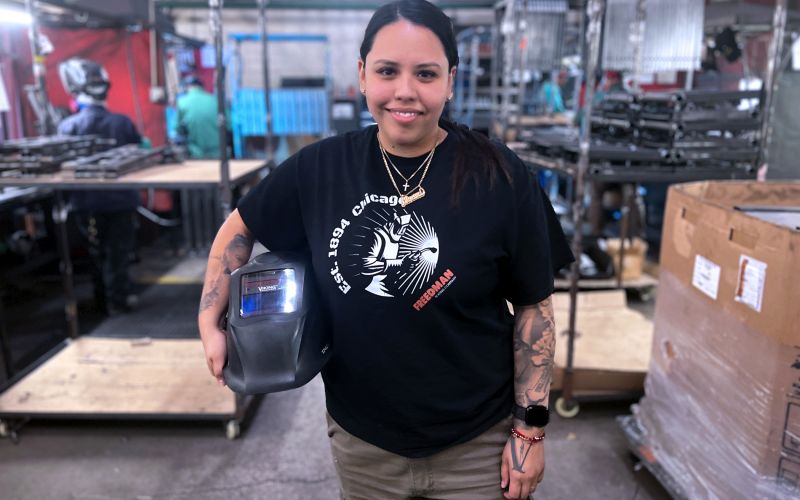January 24, 2025
Response to the End of Affirmative Action (Executive Order 11246)

Chicago Women in Trades firmly believes that affirmative action policies are essential tools for creating genuine equal opportunity in the construction trades
Chicago Women in Trades co-founder and Strategic Advisor Lauren Sugerman shares her personal story as part of CWIT’s call to action to construction contractors to commit to making good jobs available to all qualified workers.
On Tuesday, January 22, President Trump signed an Executive Order (EO) to rescind Executive Order 11246, which mandates that federal contractors take affirmative action to ensure equal employment opportunities. This is not just an abstract federal policy for me; EO 11246 changed the course of my life when I was 21. I transitioned from working as an interpreter for the Census Bureau to being hired as an elevator constructor. My salary increased by $3 per hour immediately, and within six months, I was earning $11.29 per hour—nearly triple what I made at the Census Bureau. The position also provided valuable benefits such as on-the-job training, health care, a pension, and union protections.
I would not have been hired for this entry-level job were it not for the application of EO 11246 to the contractor awarded the project to maintain and repair elevators at Chicago’s Housing Authority, which receives federal funds. Equally important was the enforcement by the Department of Labor’s Office of Federal Contract Compliance and the federal compliance officer whose oversight of the contract compelled the company to comply.
Before I entered my trade, only two other women were working in the field. Thanks to EO 11246, our numbers increased to almost a dozen by 1980. Although we have faced threats of its rescission over the past 40 years, it remains a vital tool for opening doors, one that tradeswomen depend on and that Chicago Women in Trades (CWIT) actively works to protect. Because of EO 11246, CWIT has been able to prepare and support thousands of women, ensuring they can enter and thrive in the skilled trades.
Equal opportunity hiring practices are not just about equity; they are essential for accessing untapped talent pools, which are crucial to meeting the growing demand for skilled labor in the construction trades. Currently, women comprise only 4% of construction trades workers despite demonstrating equal capability and dedication.
The executive order to eliminate equal opportunity requirements for federal contractors requires our immediate and unified response. As partners in the construction industry, we must reaffirm our commitment to making good jobs available to all qualified workers.
We call on all construction contractors to:
1. Maintain equal opportunity hiring and non-discrimination programs, irrespective of federal requirements.
2. Continue partnerships with organizations like Chicago Women in Trades that build and support our skilled workforce pipeline.
3. Publicly affirm that discriminatory practices have no place in our industry, whether in contracting, worksites, apprenticeship programs, or unions.
While we work to restore EO1126, we remind our community that the collective will of tradespeople and contractors can sustain these affirmative actions. Chicago Women in Trades is here to facilitate these efforts through training, partnerships with industry and unions, and technical assistance to businesses, government agencies, and policymakers. And to our community of tradeswomen, know that CWIT will continue to stand with you to fight for an industry that provides equal opportunity and inclusion.
Construction excellence can only be achieved by drawing on all available talent. Companies that maintain inclusive practices will be rewarded with competitive advantages in workforce development, innovation, and project delivery. And our country will be rewarded with greater opportunities for women and people of color to achieve economic equity.


